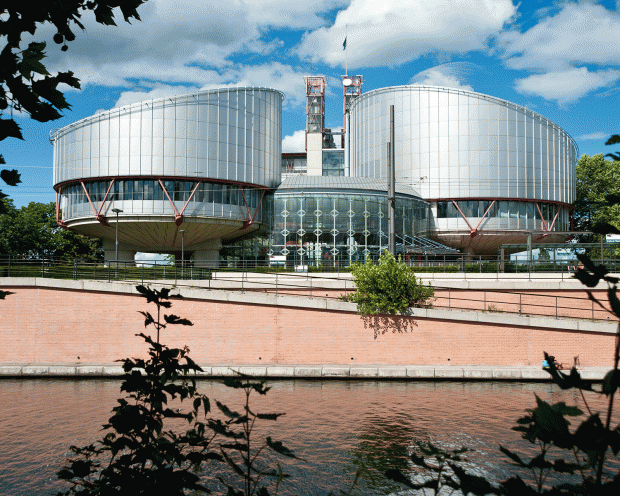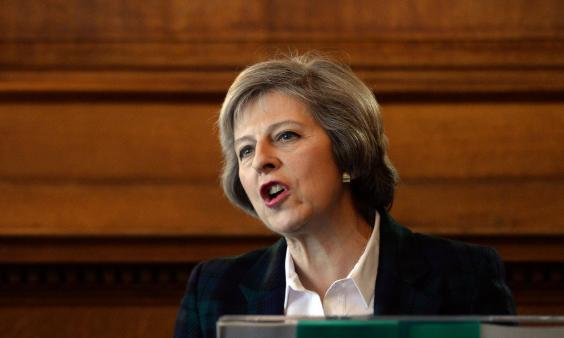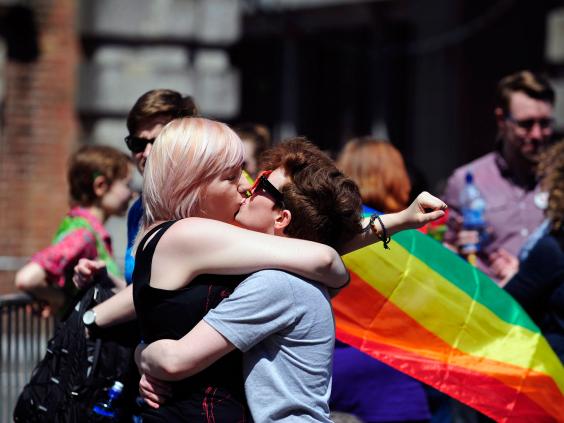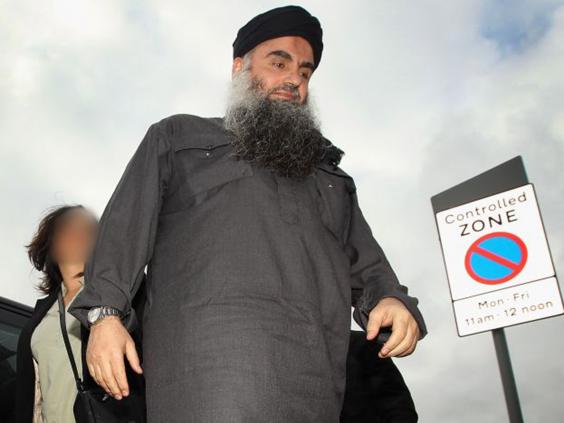日志
What has the European Court of Human Rights done for us?
|
Wanted in Russia: EU court blocked suspected Istanbul attack ...
Leader of Istanbul Terror was Wanted To Russia, Protected in Europe
http://www.larouchepub.com/pr/2016/160701_turkish_terrorist.html
July 1, 2016 (EIRNS)—As widely reported, the suicide bombing attack on Istanbul’s airport June 28, was carried out by a Chechen-led cell of the Islamic State of Iraq and the Levant, or Daesh. These are precisely the networks, for which the investigation and exposure of their Anglo-Saudi links in the 1990s, brought Lyndon LaRouche and Russian President Vladimir Putin into indirect cooperation.
It is now revealed that the leader and planner of the attack, Ahmed Chatayev, who has yet to be captured, was, according to Russian media network RT, given asylum in the European Union; a request by the Russian government for his extradition was refused. He is one of the most wanted terrorists by the Russian Federation.
When Chatayev joined the ISIL in 2015, he was assigned a leading role in training terrorists who would launch attacks in both Russia and Western Europe, according to the Deputy Chairman of the Russian Investigative Committee Andrey Przhezdomsky. Chatayev commands a unit consisting "primarily of immigrants from the North Caucasus," Russia’s Kommersant newspaper reported earlier this year.
Chatayev joined Islamist secessionist militants that fought against Russia in the Second Chechen War in 1999-2000, where he lost an arm. Later, he was considered to be a representative of Dokka Umarov, once terrorist "number 1" in Russia. He was on Russia’s wanted list since 2003 for sponsoring terrorism, recruiting extremists and membership in a terrorist group. But in the same year, he received asylum in Austria, claiming he lost his arm while being severely tortured in Russian prison. In 2008, he was detained with some other Chechens in the Swedish town of Trelleborg, after police found Kalashnikov assault rifles, explosives and ammunition in his car, for which he spent more than a year in Swedish prison.
Then in 2010 he was arrested in Ukraine with his mobile phone files containing instructions in demolition techniques, and photos of people killed in a blast. Russia’s request for his extradition was blocked when the European Court for Human Rights ordered Ukraine not to hand him over to Russia; Amnesty International also urged Ukrainian authorities to halt extradition. A year later, he was detained while trying to cross the border between Turkey and Bulgaria but he again avoided extradition to Russia thanks to the interference of human rights organizations, according to Kommersant.
Between 2012 and 2015, Chatayev reportedly lived in Georgia, where he also joined some terrorist groups and served a prison sentence on terrorism-related charges. In February 2015, he left Georgia for Syria, where he joined Daesh and assumed a high position in the organization’s hierarchy. It was only 2015 that the U.S. Justice Department put him on its terrorist list.
Police have positively identified two of the three suicide bombers as Rakim Bulgarov and Vadim Osmanov and holding Russian passports. The death toll in the airport bombing attack has increased to 44, with another 239 wounded.
The Guardian speculates that the bombing’s aftermath "may hasten Turkish-Russian rapprochement." Since the 1990s Turkey, and especially Istanbul, had become a base for thousands of Chechens and other militants operating against Russia. In fact injured Chechen fighters had received medical treatment in Turkey.
Noting that it was Putin who suppressed the Chechen rebels, and that these later joined Daesh in Syria and Iraq, the Guardian writes that 2,000 people of Russian origin—most of them Chechens—are now fighting in Syria with the jihadis.

The European Court of Human Rights in Strasbourg, France, opened in 1959 Rex Features
Campaigners and politicians have criticised Home Secretary Theresa May's assertion that Britain should leave the European Court of Human Rights (ECHR).
The Home Secretary announced her cautious support for Britain's continued membership of the EU but said it should exit the ECHR because she believes the court hampers efforts to extradite extremists.
The comments by the potential Conservative party leader candidate have been criticised as a "betrayal of the British people" and "desperate" by UK human rights organisations.
Amnesty said that leaving the ECHR would “strike at the very architecture of international protections”, while Liberty criticised Mrs May for “playing fast and loose” with the legacy of Winston Churchill - who was one of the European Convention's early architects.
 Theresa May makes the case for Britain to remain the European Union but leave the ECHR (PA)
Theresa May makes the case for Britain to remain the European Union but leave the ECHR (PA)The ECHR, which opened in 1959, upholds the European Convention on Human Rights among individuals against the 47 European countries - not just the 28 member countries of the EU.
It is not directly an EU institution - the EU has its own court, the European Court of Justice - but the ECHR's rulings often become case law for countries.
The 1998 Human Rights Act helped to integrate the Convention into UK law, but now some members of the Conservative Party want to scrap that Act in favour of a "British Bill of Rights" which would prevent decisions made by UK courts being checked by anyone else.
Here are some of the most significant laws the ECHR has brought to Britain:
1. Freedom of the press
In 1979 the ECHR backed the Sunday Times and its right to publish details of the thalidomide scandal, in which more than 300 people were thought to be victims of birth deformities because of the poorly tested drug.
 Elizabeth Buckle, a Thalidomide victim, pictured in 1968, aged seven (Getty)
Elizabeth Buckle, a Thalidomide victim, pictured in 1968, aged seven (Getty)The paper, under editor Harold Evans, fought an injunction against publishing all the way up to the ECHR after national courts did not back its attempts to bring the case to light. The ECHR overruled the courts and backed the freedom of the press to publish in the national interest.
2. Child protection
After a UK court found that a stepfather had used "reasonable chastisement" when beating his stepson with a wooden cane, the ECHR overruled them and said it amounted to "inhuman or degreading treatment".
The UK government announced later that it would legislate to give children better protection.
3. Homophobia
The criminalisation of male homosexuality in Northern Ireland was ruled as illegal by the ECHR in 1981.
This ruling set the legal precedent for the Council of Europe ultimately requiring that no EU state could criminalise male or female homosexual acts - a major protection measure for the LGBT community.
 Ireland legalised gay marriage via a referendum in May 2015 (EPA)
Ireland legalised gay marriage via a referendum in May 2015 (EPA)A claim of religious discrimination by two Christians who did not want to deal with same-sex couples was also thrown out by the Strasbourg court in 2013, who backed the employers that had disciplined them.
4. Torture
During the 1970s the British army used five "techniques" on IRA members including being forced into stress positions for hours, hooding, being subjected to noise and food and sleep deprivation.
The ECHR ruled this as inhuman and degrading treatment in violation of human rights in 1978 and had the practice within the army officially ended.
5. Deportation
Two cases have particularly inflamed the debate in some of the media and the Conservative Party around the European Convention of Human Rights.
First, the case of Aso Mohammed Ibrahim, a Kurdish asylum seeker who killed a 12-year-old girl in a driving accident and was able to plea a right to family life to remain in Britain seeking asylum.

Ms May has given the case of Abu Qatada as a reason for exiiting the ECHR (Getty)
The second was terror suspect Abu Qatada - Ms May's particular case study in the failings of the ECHR - whom Strasbourg blocked from being returned to Jordan because of evidence he had been tortured there.
Once Jordan promised not to use evidence obtained under torture, he was removed from the UK and stood trial in that country in 2013.
The ECHR also backed the deportation of five other terror suspects to the US after finding there would be no violation of human rights once they were in a "supermax" prison there.
Bella Sankey, policy director for Liberty, added: "Britain founded [the Convention], it is the most successful system for the enforcement of human rights in the history of the world, and every day it helps bring freedom, justice and the rule of law to 820 million people.”
It is not the ECHR that is the problem. After all, Britain was largely instrumental in drawing them up. The problem lies with the ECtHR that has completely corrupted it with its perverse rulings.
There is absolutely no reason that we should continue to adhere to the Convention as it was originally drawn up but without the majority of Amendments to both the ECHR and the Charter for Fundamental Rights made by the EU.
The Convention in parallel with a new British Bill of Rights should be drawn up whilst the removing the perversity such have been prevalent in the judgement of some British Judges as well as the EU such as criminals who have escaped being evicted from the Country because they own a cat or other such idiotic reason.
The Bill of Rights must be drawn up with the view that if a miscreant should put themselves in jeopardy because they have intentionally committed a serious crime or for reasons of State security, then the welfare of the vast majority should be paramount.
This article is somewhat misleading, the Thalidomide scandal was a criminal tragedy but it was in the public domain in the early 60s The victims were trying to obtain compensation through the courts in the late 70s and the reason the Attorney-General obtained an injunction restraining publication was because he reasoned it would be prejudicing a case in progress which is not allowed in British law. So in fact it was an early example of what is now common practice the ECHR overruling established British laws.
Caneing a child is indefensible and, in my opinion, the british courts needed to be overruled as in the case of homesexuality in Northern Ireland. A person's sexuality should be no business of the law or the state.
During the 1970s members of the republican army were responsible for tarring and feathering young girls for talking to British Soldiers, Kneecapping was a common punishment, as were executions. While I have a lot of sympathy with the Irish cause, the IRA were no strangers to inhuman and degrading treatment.
As for preserving the human rights of terrorists and enemies of this country, they shouldn't have any.
So as far as I am concerned the score on this article works out to two for and three against retaining the human rights act. In Spite of that if it means trusting my human rights to Theresa May and this government I guess I have no choice but to vote to retain the human rights act.
The human rights act protects millions of ordinary citizens.
We should not jeopardise this because a few little Englanders want to victimise immigrants.
What has the ECHR done for us? Watch this:
http://gu.com/p/4cpnq/sbl
Any of you lot ever hears of the Miscellaneous Provisions Act?
The ECHR gives us protection from your local authority from making up local legislation just on a whim.
The ECHR gives us protection from your local authority from making up local legislation just on a whim.


The funny thing about this article is that the first 4 are, in the context of the article legally and factually incorrect as the UK had not enshrined the legislation at this point. The only one that is correct is 5. That says everything about both the act and the quality of journalism this rag now displays - the Sunday Sport is a more accurate rag
Protecting children and gays is not the same as protecting terrorists. While the court served a useful function 20 years ago it has become an unwelcome defender of the rights of people who would deny those same rights to others if they could. While membership was justified when it was defending against hate now that it protects hate it should no longer be considered a court of human rights.
Racist, mass murderer, supporter of selective breeding (or wiping out), warmonger, trade union enemy, yet you mention Churchill and human rights in the same sentence.
Bwahahahah
Bwahahahah
This comment has been deleted
This comment has been deleted

I notice that 4 of the 5 numbered points in the article are references to cases that took place BEFORE the UK Human Rights act came into force in 2000. That just goes to show, surely that our system worked quite well before the act was introduced and that repealing the act by no means would mean that there would be no human rights left in the UK. Britain is still a signatory of the treaty - the result would still prevent major problems.

What we have is an impartial court that can rise above the extremism in British politics. Anyone hell bent on removing that layer of sanity can only have motives that are not good for the British public.

Typical cynical leftist manipulation of the facts and reality, Sir Winston Churchill would have never have even considered for one moment that the human rights act was for protecting foreigners convicted of rapes, murders terrorism etc from being deported from the UK once released from prison, to use his name in such a way is deeply disrespectful but then again from the way the left wingers have acted over the EU referendum it's blatantly obvious they have no morals and will side with anyone however normally repaginate to them to get their way.
A British Bill of Rights for British Citizens only. We can even use the ECHR template.




